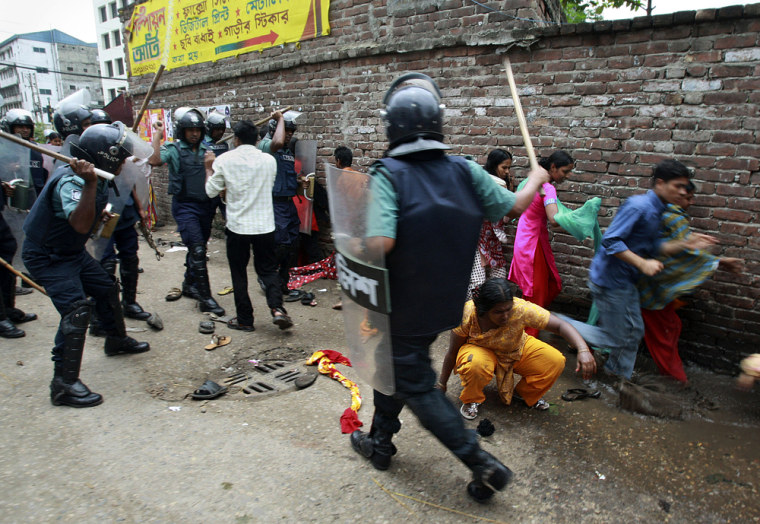Thousands of Bangladeshi garment workers took to the streets, burning cars and blocking traffic in the capital Dhaka on Friday to protest against a government-announced wage hike that fell far short of their demands.
Police officers said security forces used tear gas and batons Friday to disperse the protesters in central Dhaka, where dozens of garment factories are located.
The angry workers broke into shuttered buildings and set furniture on fire in the heart of Dhaka Friday, the BBC reported.
Officers said several people were injured. The officers spoke on condition of anonymity, citing local briefing rules.
After weeks of violent protests, Bangladesh nearly doubled the minimum monthly wage Thursday for millions of workers in the key export garment industry to 3,000 taka ($43) from 1,662 taka, but it fell far short of labor union demands of 5,000 taka. The increase will take effect on November 1, 2010.
"We are rejecting what has been offered as increased wages because it is too inadequate to make ends meet," a worker told Reuters news agency.
Bangladesh-based factories make clothes for international brands such JCPenney, Wal-Mart, H&M, Marks & Spencer, Zara and Carrefour.
Garments are Bangladesh's biggest export, accounting for more than 80 percent of annual export earnings worth $16 billion as garment industry workers earn wages well below the poverty line.
The garment sector is Bangladesh's second biggest employer after agriculture, with about 4,500 factories employing about 3.5 million workers, with many toiling in dangerous conditions.
Dozens of workers were injured in clashes with police last month at protests over salaries and working conditions that disrupted production at several factories.
